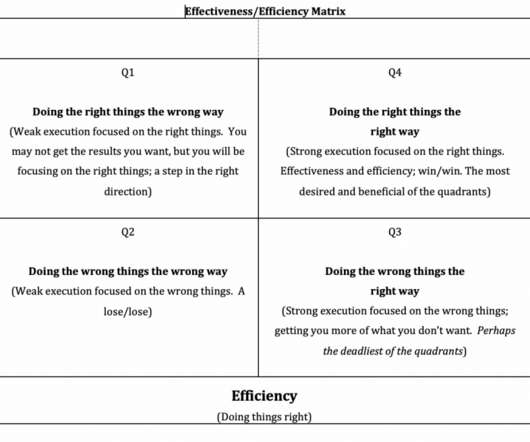Avoid Doing the Wrong things Righter…But, “By What Method?”
Deming Institute
JUNE 30, 2020
Rather than seizing this as an opportunity to develop a new theory on which I might improve student engagement and learning, I focused not on what was on the minds of my students but on improving my pedagogy; reinforcing, perhaps, how to continue to do the wrong things – things that had no relevance for my students – better. References.












Let's personalize your content